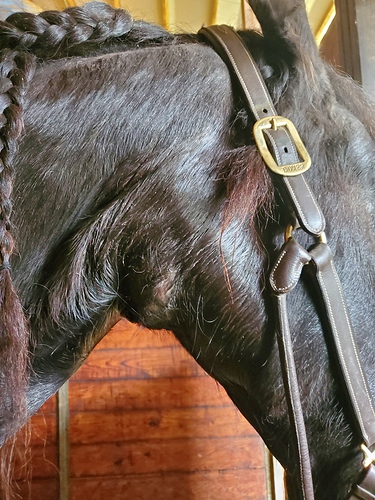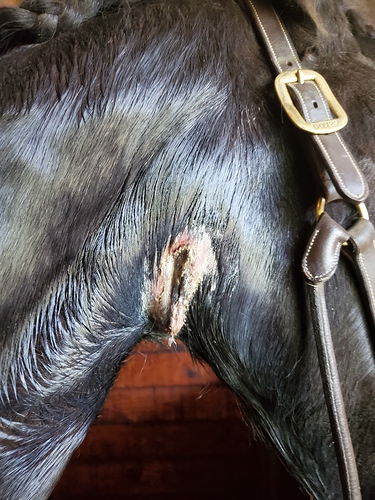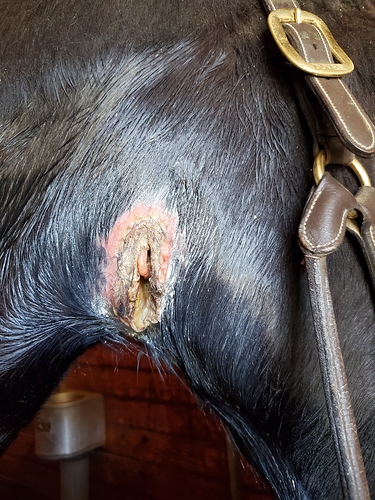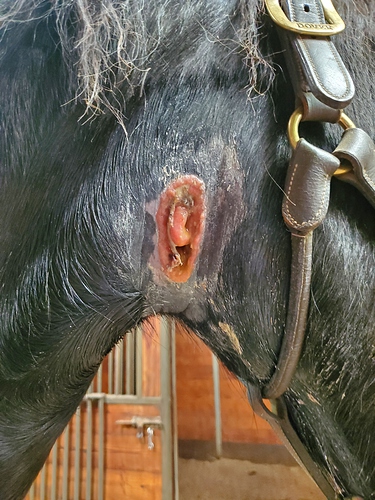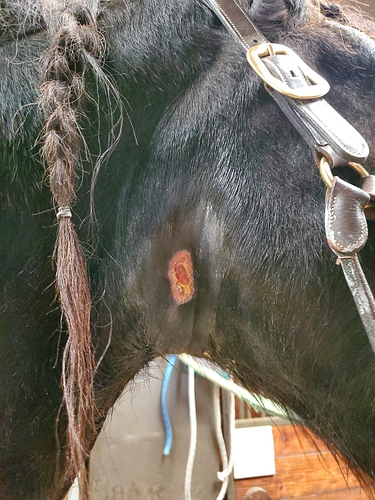I have a 24 year old Friesian gelding with Cushings who has had a recurring neck abscess, three times now, and I’m hoping someone else has gone through this.
It started back in June this year, one day I came out to the barn and the area of his throat latch, kind of behind his jaw/neck area, was swollen to about the size of a grapefruit. It was very tender to the touch and leaking a bit of yellow fluid. The vet came out, recommended hot compresses until it came to a head. A few days later, he came back out and lanced it open under ultrasound guidance. A ton of pus came out. Then he has a huge gaping flap/pouch open. It took over a month to heal and was really quite disgusting.
When the vet drained it, he sent a culture off which came back positive for streptococcus zooepidemicus https://aaep.org/horsehealth/s-zooepidemicus-infections. From what I understand, most horses are exposed to/carriers of this but because my horse was older and had Cushings, it caused this infection. The vet did drug susceptibility testing and treated him with a course of uniprim powder.
After over a month, it was nearly healed but then suddenly started to drain pus and swell again. The vet debated opening it back up again or not but decided not to and did a 10 day course of SMZ/TMP. This cleared it up pretty quick and it looks really completely healed.
But today I come out and his throatlatch is swollen to the size of a grapefruit and tender again. This literally happened overnight. The vet came back out and says it will need to drain it again and we will try a longer course of antibiotics. But he says the infection was likely never fully cleared last time. He says that depending on how things go, his recommendation may be to take him to a bigger equine hospital to have it surgically cleared out and have a drain put it.
I’m really weighing the pros and cons of hauling a 24yo horse 3 hours away for surgery and have concerns about how well he would do with surgery. Has anyone has any experiences like this before? If pictures would be helpful, I can also share those.

